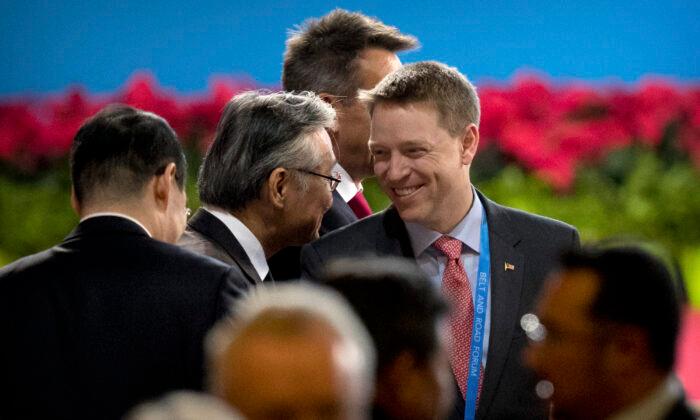Former deputy national security adviser Matt Pottinger said that an effective U.S. strategy on China could potentially result in “regime collapse” driven by members of the Chinese Communist Party (CCP).
During an interview with CNN on April 29, Mr. Pottinger said that members of the CCP are “extremely concerned” about the direction that China’s leader, Xi Jinping, is steering their country.
He said that Mr. Xi has taken “a confrontational approach” toward the United States and “fueling wars in Europe,” describing the Russia-Ukraine war as “the biggest war in Europe since World War II.”
“So what we’re calling for is a policy that actually aims for victory on the same terms that George Kennan described in the beginning of the Cold War, where basically we would contain the Soviets,” he stated, referring to the former U.S. ambassador to Russia in 1952. “And naturally the Soviet system would eventually begin to collapse under its own rotten weight—not because we’re pursuing, you know, an Iraq-style regime change policy.
“But, in fact … George Kennan was proven right four decades later, you know, at the end of the Reagan administration, when the Soviet Union just kind of went out with a whimper,” Mr. Pottinger added.
Mr. Pottinger warned that the CCP has been waging “a Cold War” against the United States, with the CCP’s leadership seeking to establish dependency on China among the Western industrialized nations.
“Xi Jinping has said in more than one speech that the primary descriptor of the world today is chaos,” he said. “And he goes on to say that this is actually beneficial for the Chinese Communist Party’s aims in the world.”
When asked about former President Donald Trump’s strategy on China if he were to win the upcoming November election, Mr. Pottinger said that President Trump may impose “significant costs” on China for any actions undermining U.S. interests.
“The advantage of President Trump’s approach was that he was willing to be confrontational,” Mr. Pottinger said.
“I think that if President Trump were to adopt, if he gets reelected, some of that Cold War framework, I actually think it would accelerate a successful U.S. policy in a second term,” he added.

President Trump said in a FOX News interview in February that he would impose over 60 percent tariffs on China if he gets reelected in November.
“I mean, look, the stock market almost crashed when it was announced that I won the Iowa primary in a record. And then when I won New Hampshire, the stock market went down like crazy,” he said, referring to the Iowa caucus and New Hampshire primary nominating contests in January.
President Trump imposed tariffs on hundreds of billions of dollars’ worth of Chinese goods during his administration in 2018 and 2019 amid a bitter trade war between the world’s two largest economies.
The Biden administration later retained the tariffs and added new restrictions prohibiting the export of advanced semiconductors and the equipment to make them, citing security concerns.
He called on Washington to work with the regime to “create favorable conditions for the sound and stable development of China–U.S. economic and trade relations,” dismissing the criticisms of the CCP’s policies of IP theft and subsidies.







